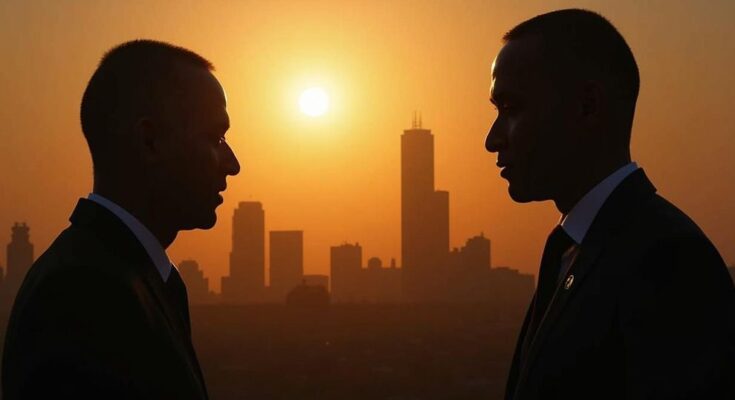The UAE has accused Sudan’s armed forces of bombing the ambassador’s residence in Khartoum, leading to extensive damage. Sudan denies responsibility, blaming the Rapid Support Forces instead. The accusations come amidst a protracted civil war, raising concerns about foreign involvement and the humanitarian crisis affecting millions in Sudan.
On Monday, the United Arab Emirates accused the Sudanese armed forces of conducting a bombing at the residence of its ambassador in Khartoum. The UAE’s foreign ministry released a statement confirming that the attack resulted in significant damage to the ambassador’s home. In response, the Sudanese military rejected the UAE’s claims, instead attributing the bombing to the Rapid Support Forces (RSF), a paramilitary group that the Sudanese government alleges has been supported by the UAE amid the ongoing civil war in Sudan, which has persisted for 17 months. The UAE’s Foreign Ministry condemned the bombing as a “heinous attack,” calling for the Sudanese army to take full responsibility for what it described as a “cowardly act” against diplomatic premises, violating international norms on the inviolability of diplomatic missions. Furthermore, the Sudanese military asserted that it does not target diplomatic missions or international organizations, instead blaming the RSF for such escalations, which they claim are backed by foreign nations. A report from the United Nations Security Council earlier in the year had indicated “credible” evidence of the UAE supplying weaponry to the RSF, further complicating the geopolitical landscape in the region. The ongoing conflict has resulted in devastating humanitarian consequences, with a reported death toll exceeding 14,000 and nearly 25 million people, half of Sudan’s population, classified as in need of humanitarian aid. In recent developments, the Sudanese army has intensified its military efforts to reclaim control over the capital from the RSF, which has dominated much of Khartoum for several months. International observers continue to watch closely as the situation unfolds, emphasizing the urgent need for a comprehensive resolution to the conflict that has led to unspeakable human suffering.
The diplomatic incident regarding the bombing of the UAE ambassador’s residence is set against a backdrop of the ongoing civil war in Sudan, which began in April 2023 and has led to extensive casualties and humanitarian crises within the country. The conflict primarily involves the Sudanese armed forces and the RSF, a paramilitary group implicated in various human rights violations and alleged foreign involvement. The UAE’s claims of being targeted by the Sudanese military and the subsequent exchange of accusations between the two parties highlight the complex web of alliances and tensions that underpin the Sudanese conflict. Additionally, international organizations, including the UN, have taken notice of the UAE’s potential support for the RSF, intensifying scrutiny over foreign influence in the region.
The recent accusations exchanged between the UAE and Sudan underscore the escalating tensions in a conflict that has already claimed countless lives and destabilized the region. As both parties trade blame over the bombing incident, the implications of foreign involvement and the humanitarian crisis continue to provoke international concern. The situation remains fluid, with the potential for further escalation until a peaceful resolution is achieved.
Original Source: www.dw.com




